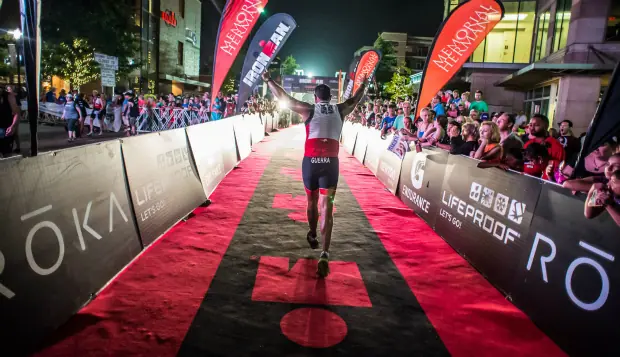
Every October, the top triathletes from across the world gather to compete at the crown jewel of the sport in Kona, Hawaii. The television broadcast of the event has inspired thousands of people watching on couches to dramatically change their lives. They have dusted off the swim goggles, bikes and running shoes and crossed finish lines they once thought impossible.
For many though, the words, "You are an IRONMAN," remains an elusive dream. At what point should you turn that dream into reality and target finishing a full triathlon? We turned to top coaches as well as top Iron-distance triathletes to find the best advice they could offer.
Triathlon Events Near You
As you might expect, the answer to that question is intensely personal. Yes, physical conditioning plays an enormous role in evaluating whether now it the time to finally go for it. However, both the emotional and financial requirements should be considered as well. Here's our list of the top 10 questions to answer before waiting in a line at the race site or hitting the button on your computer to register:
1) Have I competed in enough IRONMAN 70.3 races to truly understand what's ahead?
Preparing for an IRONMAN 70.3 easily requires 8 to 10 hours per week of training for 18 to 22 weeks—a period similar to training for a marathon. The race itself is long enough to test your ability to pace yourself, manage your nutrition, and find out if you enjoy competing at this level.
2) Do I have an appropriate level of base fitness to train at a high volume?
We all know people or stories of people who signed up for an IRONMAN as their first triathlon. They then spent the next year building to the event through shorter courses and conscientious training. This is possible, but is also the exception. Do you feel you have the strength to complete high volumes of training, recover quickly, and avoid injury over a six-month period?
3) Do I have the right coaching support to train in a structured manner for the event?
Unlike the annual town sprint triathlon, you can't "wing" training for a race of this level. Have you found the right book for self-coaching, the right triathlon club with a program, or the right coach for individualized training that will get you safely to your goal?
4) Do I understand my nutritional needs for an endurance event of this length?
Nutrition truly is the fourth leg of the race. You will need to learn to eat to train, not train to eat over the next six months. Do you have a good sense of your relative sweat rate and your own metabolism? Do you have someone you trust who can help you prepare a proper nutrition plan?
5) Am I prepared to commit to train for 15 to 25 hours per week for six months?
Adequately training for the race can feel like a part-time job. Some competitors will easily devote 30-plus hours in the peak weeks. Are you willing to dedicate this much time and still maintain the passion that attracted you to the sport?


